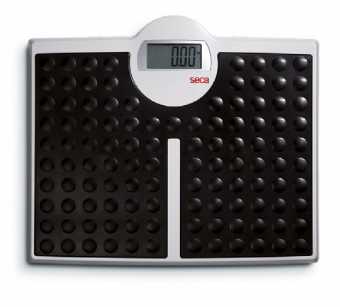


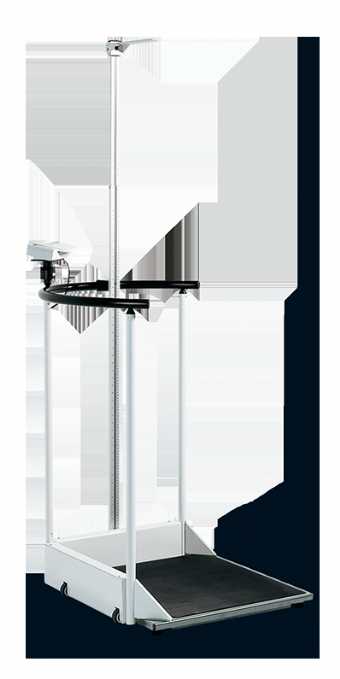

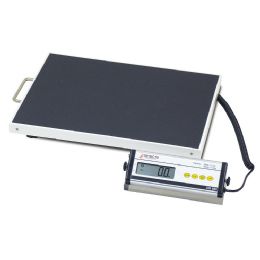
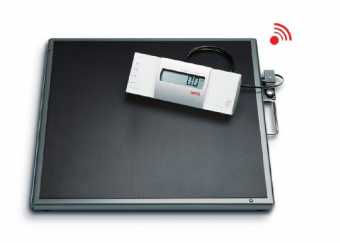

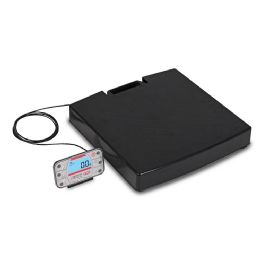
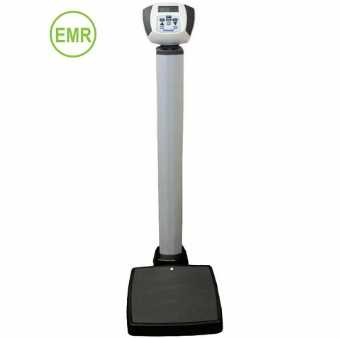
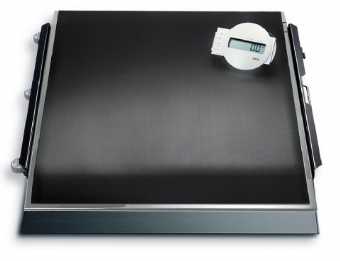

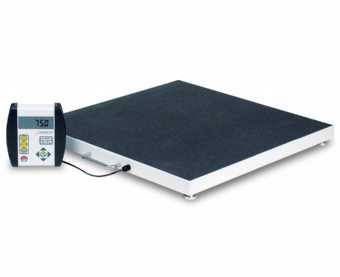
What is a Bariatric Scale?
Also known as a heavy-duty scale, a bariatric scale is specially designed to safely accommodate heavier and larger people. Providing accurate weight measurement along with the ability to calculate body mass index (BMI), some bariatric scales also offer the option of an adjustable bar to attain height measurement. Different from an ordinary bathroom scale that maxes out at 300 or 350 pounds, a bariatric scale typically offers a maximum weight capacity that ranges anywhere between 400 and 1,000 pounds.
Types of Bariatric Scales
Highlighting low-profile platforms that reduce the risk of falls and are easier for unsteady users to access, a bariatric platform scale also provides a larger and wider space to stand on. Skid-free surfaces come standard, further ensuring the user’s safety, along with handrail options and padded grips for sturdy and dependable handheld support. Some designs offer seated weighing capability. Perfect for anyone experiencing mobility impairment, seated configurations deliver comfortable, convenient, and secure support that’s also easier to access for wheelchair transfer.
While most bariatric scale devices can be used for both in-home and institutional purposes, an in-floor platform scale provides versatile weight measurement that’s best suited for professional applications. Enabling fast and precise measurements for bariatric patients in wheelchairs, dialysis chairs, and stretchers, tare functionality ensures that these folks never have to leave their mobility aids to be weighed. In-floor platform scales are most commonly utilized by hospitals, specialty weight management clinics, skilled nursing facilities, and other bariatric medicine applications.
Another design highlight for professional healthcare purposes is the EHR and EMR compatibility provided on a variety of bariatric scales. Enabling healthcare professionals to transmit the patient’s weight and other pertinent information to the Electronic Health Records and Electronic Medical Records systems ensures fast, convenient, and up-to-date patient information.
Bariatric Scale Features
Whether used for healthcare operations or at home for personal needs, a bariatric digital scale is usually powered by batteries - it may also come with an AC adapter so you can power it through a standard electrical socket. Bluetooth technology is included in some bariatric scales, offering convenient wireless operation for both healthcare professionals and in-home applications. Portable bariatric scales that are lightweight are optimal solutions for individual users or medical professionals who are on the go. They may include wheels or a carrying case and are ideal for physicians providing mobile health and someone tracking their weight while traveling.